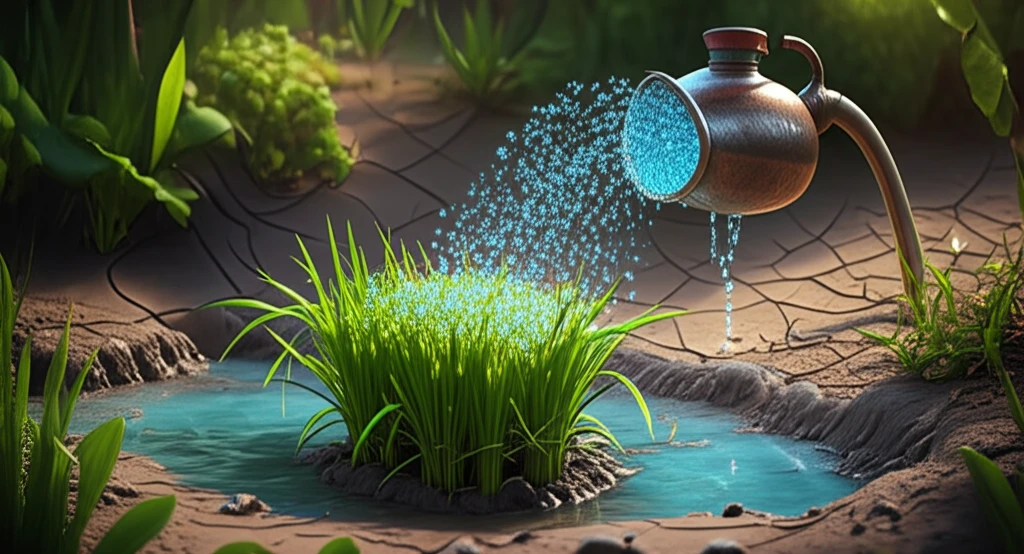
Hydrogen-Rich Water: The Unexpected Key to Healthier Plants?
"Discover how this simple innovation could revolutionize agriculture and home gardening, influencing everything from rice crops to your backyard plants."
In a world increasingly focused on sustainable solutions, the potential of hydrogen-rich water (HW) in agriculture is garnering attention. While hydrogen gas (H₂) is known for its role in helping plants withstand stress, its broader impact on plant development and reproduction has remained somewhat of a mystery. Recent research is shedding light on this intriguing area, suggesting HW could be a game-changer for both crop production and home gardening.
The latest research dives deep into how HW affects various types of rice, from conventional and genetically modified varieties to wild species. By exploring its effects, we can gain insights into optimizing plant health and productivity. This article breaks down the findings, revealing how HW could be used to enhance plant growth and resilience.
Imagine a future where you can boost the health of your garden simply by using hydrogen-rich water. Let’s explore this exciting possibility and understand how HW could transform the way we grow plants.
Unveiling the Science: How Hydrogen-Rich Water Impacts Plant Fitness

A detailed study published in Agronomy Journal investigated the effects of HW on several types of rice. The experiment involved irrigating conventional rice (Oryza sativa L.), insect-resistant Bt-transgenic rice, and two wild rice species (O. rufipogon Griff. and O. minuta J. Presl) with HW in a greenhouse setting. Researchers meticulously tracked various fitness parameters, including root and shoot elongation, pollen characteristics, seed weight, and overall seed production.
- Root and Shoot Growth: HW generally inhibits root and shoot elongation in conventional and transgenic rice.
- Reproductive Fitness: HW affects pollen size and seed weight in both conventional and transgenic rice, but the specific effects vary.
- Wild Rice Variability: The impact of HW on wild rice depends on the species' original habitat.
- Transgenic vs. Conventional: HW can have differing effects on transgenic rice compared to conventional varieties.
The Future of Hydrogen-Rich Water in Plant Care
The research clearly indicates that hydrogen-rich water holds potential for influencing plant growth and stress resistance. However, its effects are complex and vary depending on the plant species, genetic background, and environmental conditions. While further research is needed to fully understand and optimize its application, HW presents an exciting avenue for developing sustainable and tailored approaches to plant care. Whether you're a farmer looking to improve crop yields or a home gardener seeking healthier plants, understanding the nuances of HW could be a key to unlocking nature's potential.
